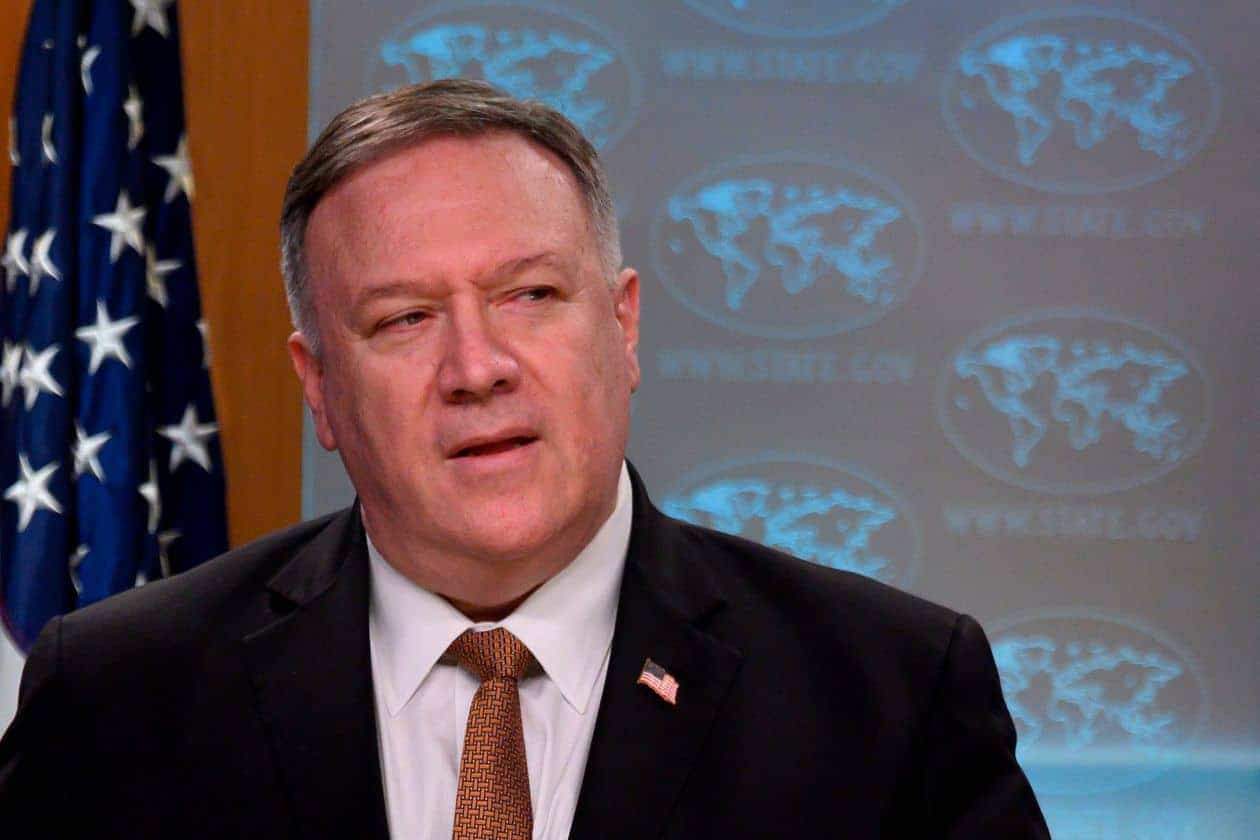Pompeo Urges U.N. to Extend Iran Arms Embargo

Secretary of State Mike Pompeo called on the United Nations Security Council to extend a five-year ban on conventional weapons trade with Iran that is set to expire in October, while his Iranian counterpart warned of dire consequences of such an action.
The top U.S. diplomat urged the council, which convened in a virtual session to consider the 2015 international nuclear agreement with Iran, to act in service of its founding mission to ensure global peace and security.
Mr. Pompeo said the expiration of the embargo would enable Iran to threaten maritime trade, purchase Russian jet fighters for its own use and other technologies for its regional proxies, threaten regional economic stability, and emerge as an arms dealer for rogue states.
The secretary warned that an Iranian purchase of Russian-made aircraft would place “cities like Riyadh, New Delhi, Rome and Warsaw in Iranian crosshairs.”
Mr. Pompeo pointed to the U.N. secretary-general’s findings in a June 11 report that the weapons employed in September attacks on Saudi oil facilities, and those interdicted off the Yemeni coast in November and February, originated in Iran.
“Iran is already violating the arms embargo, even before its expiration date,” he said.
After Mr. Pompeo’s remarks, Iran’s foreign minister Javad Zarif accused the U.S. of seeking to harm the Iranian people and of destabilizing the Middle East through its military interventions.
“For the first time in history, a permanent member of the Security Council is punishing law-abiding states and private citizens for not violating a Council resolution,” he said, referring to Security Council action endorsing the 2015 agreement.
The five-year ban is set to expire Oct. 18, and several countries have challenged the U.S. push for its extension following the Trump administration’s 2018 withdrawal from the nuclear agreement.
Russia and China, permanent members of the Security Council that remain party to the nuclear deal and potential weapons sellers to Iran, have rejected U.S. demands for an extension.
Mr. Pompeo said the administration’s “overwhelming preference” is to work with the council to extend the embargo, saying the body “must reject extortion diplomacy.”
Mr. Zarif accused the U.S. of seeking to undermine multilateral institutions, and the agreement’s European signatories of threatening to weaken it. He described the U.S. withdrawal from the nuclear agreement as illegal, while thanking Russia and China for resisting the American campaign to further isolate Iran.
Representatives from several countries criticized the U.S. withdrawal from the nuclear agreement, questioning Washington’s standing to call for a restoration of multilateral sanctions and urging the preservation of the deal.
China’s Zhang Jun said the 2015 agreement is “legally binding and should be effectively implemented,” and expressed his government’s opposition to an extension of the arms embargo.
U.K. envoy Jonathan Allen said “since May 2018 we have worked tirelessly” to preserve the Iran deal, the Joint Comprehensive Plan of Action. He cited the creation of a trade mechanism meant to circumvent U.S. sanctions.
Tuesday’s Security Council meeting played into Iran’s effort to exploit the policy rift between the U.S. and Europe on Iran, said Behnam Ben Taleblu, senior fellow and Iran expert at the Foundation for Defense of Democracies, a think tank that is critical of Iran.
Mr. Taleblu said Mr. Pompeo’s remarks signaled a more deliberate approach as the Europeans look to preserve the agreement amid Washington’s calls for a total transformation of Iran’s relationship to the world.
“It’s one thing to find a way to amend an arms embargo,” he said. “It’s another to actually be willing to reset the international baseline of pressure on Iran back to what existed from 2010 to 2015.”
Photo: Secretary of State Mike Pompeo urged the U.N. Security Council to ‘reject extortion diplomacy.’ - PHOTO: ANDREW CABALLERO-REYNOLDS/AGENCE FRANCE-PRESSE/GETTY IMAGES
Link: https://www.wsj.com/articles/pompeo-urges-u-n-to-extend-iran-arms-embargo-11593531943











